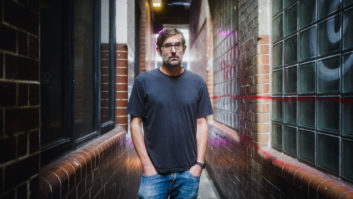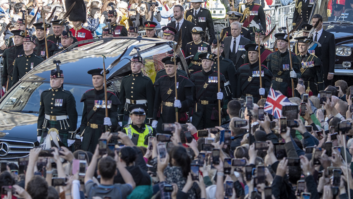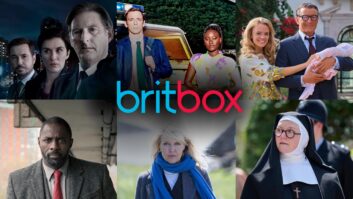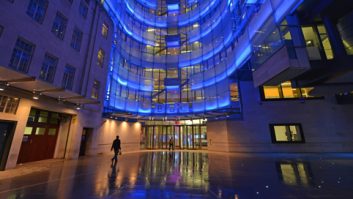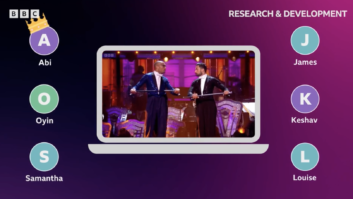
The BBC has been ordered to air more British-made programmes and spend the same on viewers in Scotland, Wales and Northern Ireland as it does in England under new rules for the broadcaster set by Ofcom.
Ofcom said the new guidelines are designed to ensure the broadcaster offers ‘high-quality, distinctive programmes for its entire audience’.
The media regulator stated that 90 per cent of all programming in peak time on BBC1 and BBC2 must be original productions commissioned by the BBC for UK audiences, effectively meaning a ban on foreign shows and repeats in the evening.
The BBC will also be forced to spend the same per head on content in each country of the UK, following criticism from audiences in Scotland, Wales and Northern Ireland that the BBC is not doing enough.
At least half of the programme hours on the BBC must include content made outside London.
A BBC spokesperson said: “These are a tough and challenging set of requirements which rightly demand a distinctive BBC which serves and represents all audiences throughout the whole UK.
“We will now get on with meeting these requirements and continuing to provide the world-class, creative BBC the public wants.”
According to Ofcom, the new licence will:
– Strengthen news and current affairs rules. Ofcom has increased quotas for news and current affairs on BBC One and Two, and set new conditions for radio. Radio 2 will be required, for the first time, to air at least three hours of news and current affairs in peak time per week, and Radio 1 to broadcast an extended news bulletin in peak time each weekday
– Safeguard vulnerable genres such as arts, music and religious programmes. Ofcom research shows these areas are seen as important for some audiences; but some are in decline. So Ofcom has confirmed higher requirements for BBC One and BBC Two to show programmes in these genres, including a new requirement to broadcast some during peak viewing times. It has also introduced a condition to safeguard comedy programmes on BBC One and BBC Two for the first time
– Support a wide range of valued genres. The Government’s BBC Agreement sets out genres that the BBC must support across its channels and services, such as drama, comedy, factual programmes and different types of music. Ofcom expects the BBC to support valued genres, particularly those that have seen declining investment. Ofcom also expects it to continue producing programmes on a broad range of established themes and interests – including among others, programmes covering politics, business, consumer issues, rural affairs, health, disability and social action
– Support social action campaigns on BBC radio. Ofcom is requiring Radio 1 to offer a minimum number of major social action campaigns each year. Raising awareness of social issues among younger people and providing a platform on which to engage is one of the key ways Radio 1 can set itself apart from other radio stations.
Ofcom has also stated that the BBC must improve diversity.
“We have set four objectives for the BBC in relation to the diversity aspect of this public purpose,” the report stated. “Among these is an objective for the BBC to reflect the diversity of the UK’s difference communities appropriately to its output and services.
“This should include age, disability, gender reassignment, race, religion and belief, sex, sexual orientation and socioeconomic background. Given the BBC’s size and scale, it should lead the way and set an example to others across the board.”
The BBC will now be publicly accountable for achieving its workforce diversity targets. This includes having 15 per cent of staff from ethnic minority groups, and 50 per cent of all staff and leadership roles to be held by women by 2020.
The corporation must also measure and report annually on its on-screen and on-air diversity. Ofcom will scrutinise the BBC’s performance to assess whether it is making sufficient progress in serving the UK’s diverse communities, and whether audiences are satisfied. If audiences are dissatisfied, the BBC must explain itself and put in place measures on how it will improve.
The full report is available here.
